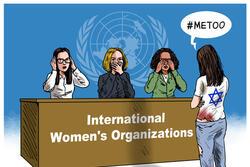Reading #6
My First American Encounter With Racial Prejudice
Written By Hana Dubova, 2005
**only suitable for high school students. For younger students, please summarize**
http://www.followmyfootprints.co/primary-source-racialprejudice
Debrief : Is this a story that you would associate with a Holocaust survivor? What does it mean to be a survivor? What are the unexpected and expected challenges of being an immigrant, especially one who was once a refugee? Give time for this debrief as the story can be an entrance point to a conversation about race relationships in the United States and what it means to stand your ground when you see in justice and prejudice.
Activity #6 : Vocabulary Review
Instructions for Teacher : Depending on the students learning style, teachers should pull together a vocabulary review that makes sense for their classroom. For example, if they are students who like working alone, give them a word match where they can match definitions to key words used throughout the lesson. If the students like working in teams, you can create a trivia round for them that has them defining concepts and ideas together.
Vocabulary Words : Identity, Ethnicity, Refugee, Victim, Emigrant, Immigrant, Migrant, Assimilation, Displacement, Stateless, Internally Displaced, Asylum Seeker, Deportation, Democracy, Bystander, Upstander, Resistance, Collective Courage, Resilience, Zionism, Propaganda, Neutral, Prejudice, Xenophobia, Discrimination, Persecution, Concentration Camp, Extermination Camp, Genocide, Survivor’s Guilt, Unsung Hero, Righteous Among the Nation
**Feel free to add or subtract words based off of what you covered with your students**
Activity #7 : Agree / Disagree
Instructions for Teacher : Return to the Agree/Disagree activity and encourage a healthy discussion that looks back on everything learned so far. The discussion and activity questions should now focus on themes like heroism, resilience and survival. Ask challenging questions that encourages the students to think about what they would do if they were faced with any of the realities they have learned about thus far.
Examples of statements :
- “Heroes evolve; they aren’t born.” - Ervin Staub
- “Anyone who closes his eyes to the past is blind to the present.” - President Richard Von Weizsacker of West Germany
- “If you are neutral in situations of injustice, you have chosen the side of the oppressor.” - Desmund Tutu, South African Activist
- The last battles found in every war are over memory — over the way in which the war will be remembered.
- The truth is less important in understanding the past than what people think is true.


